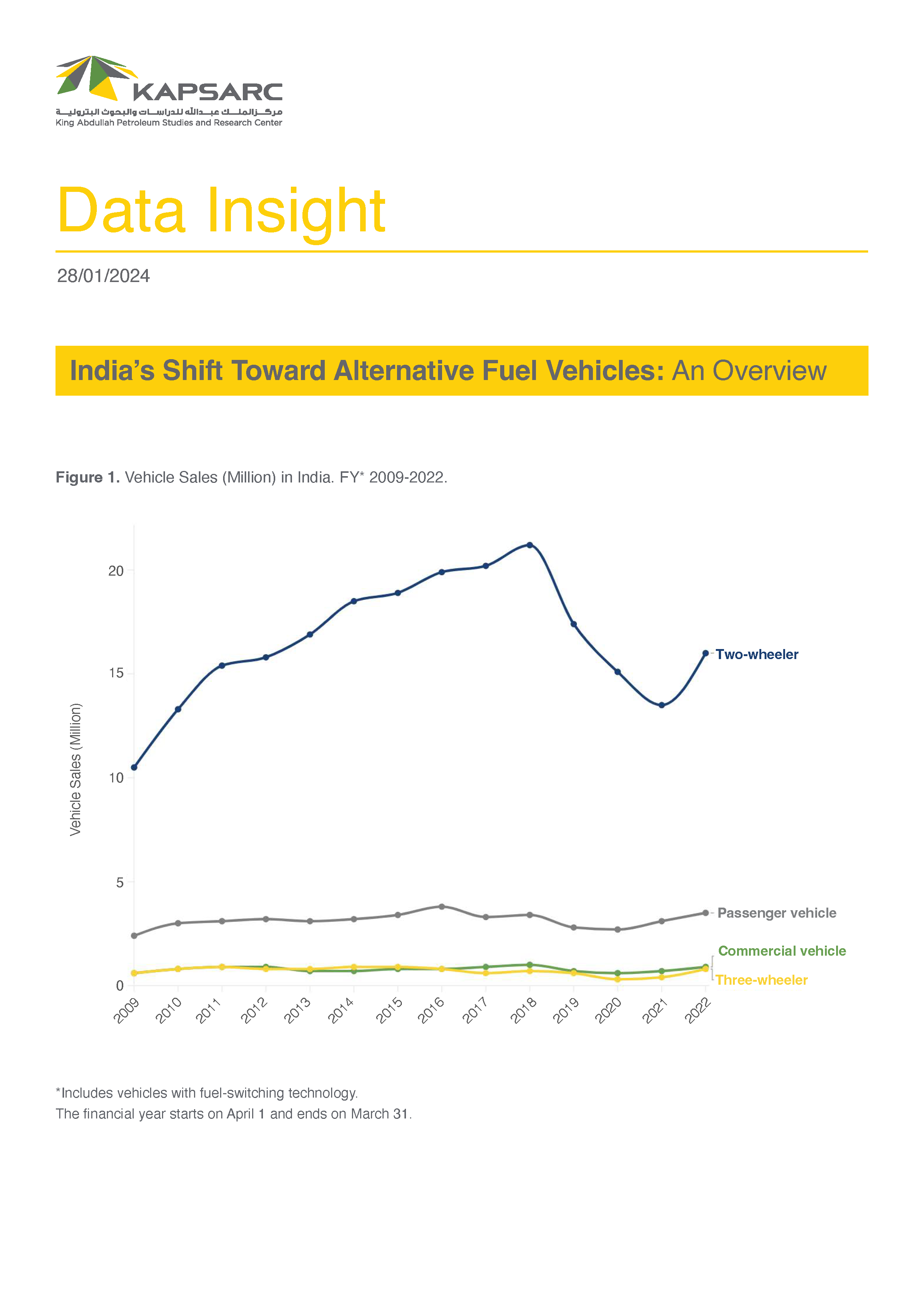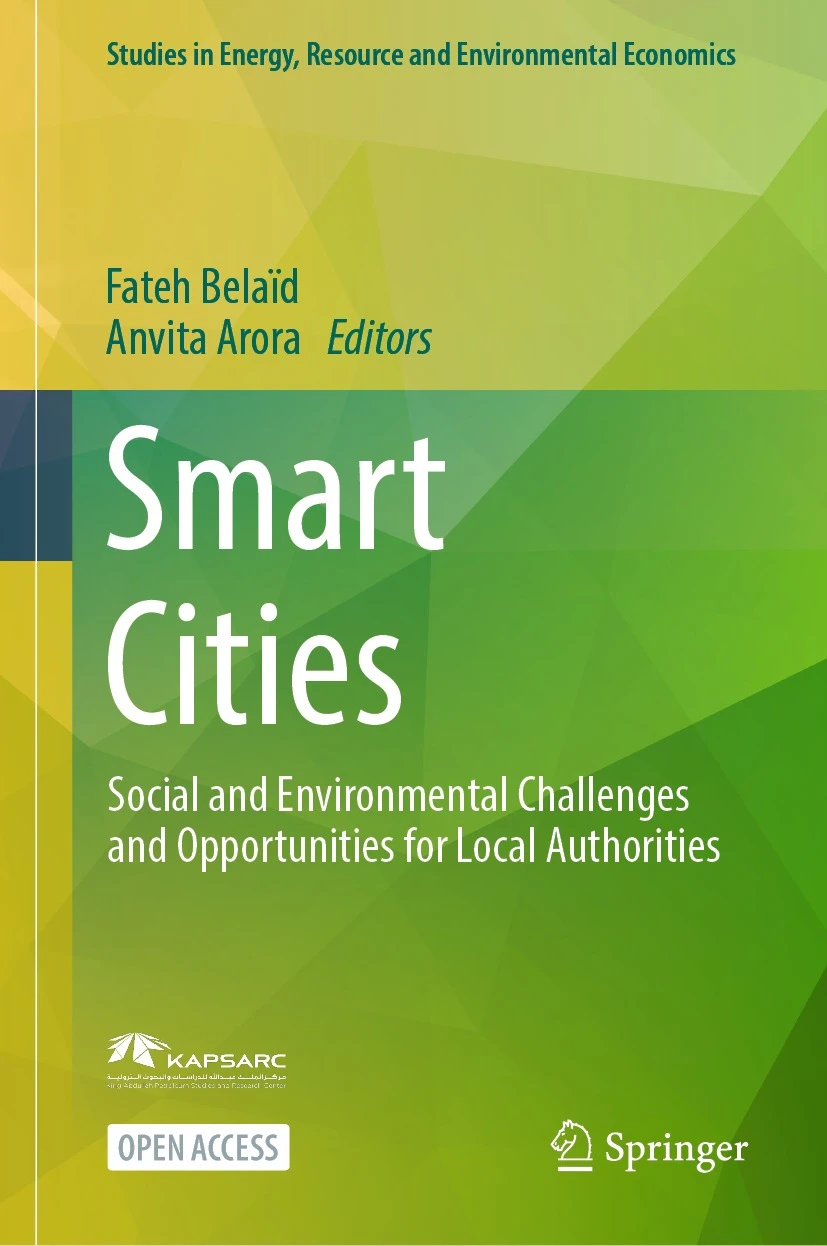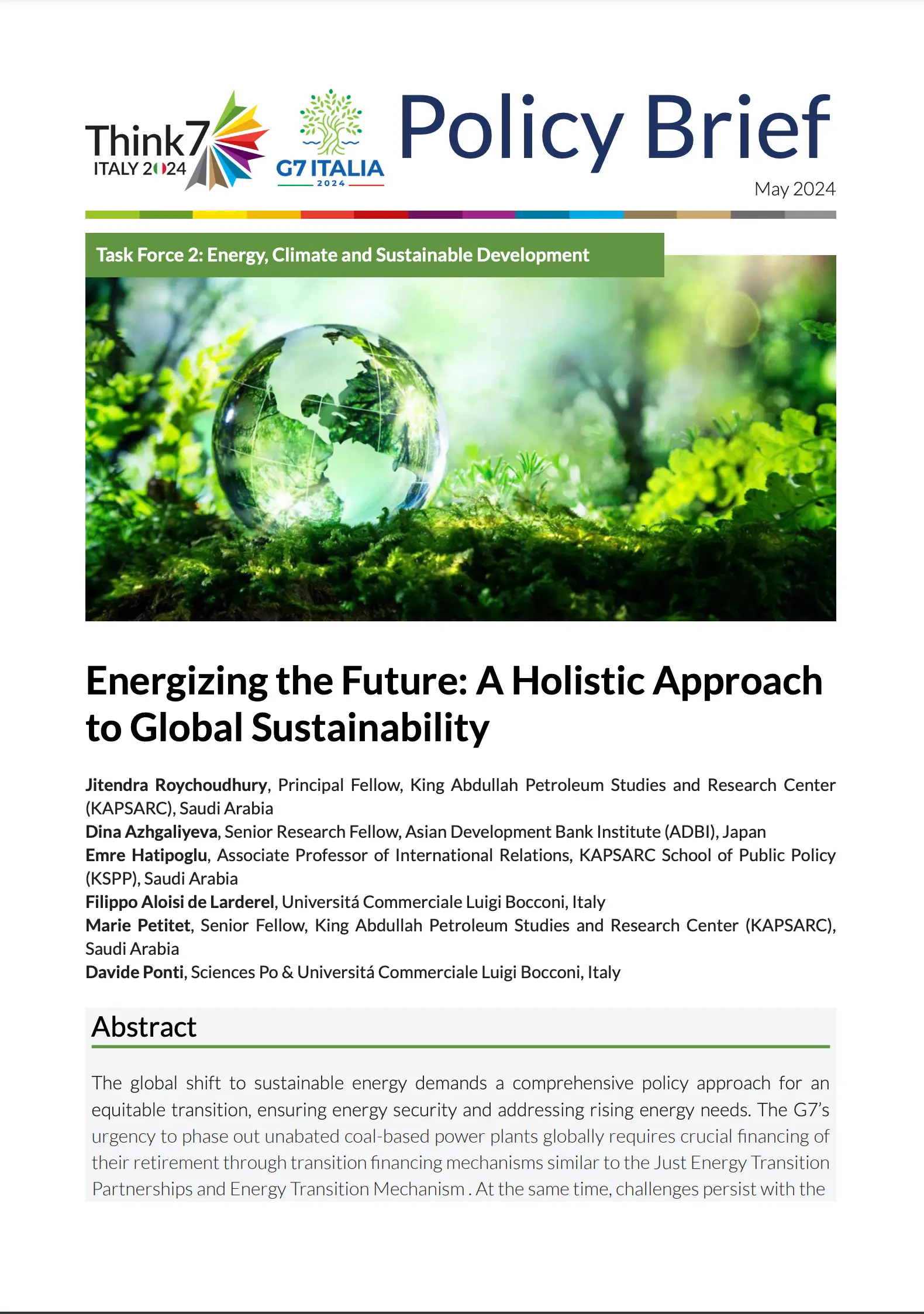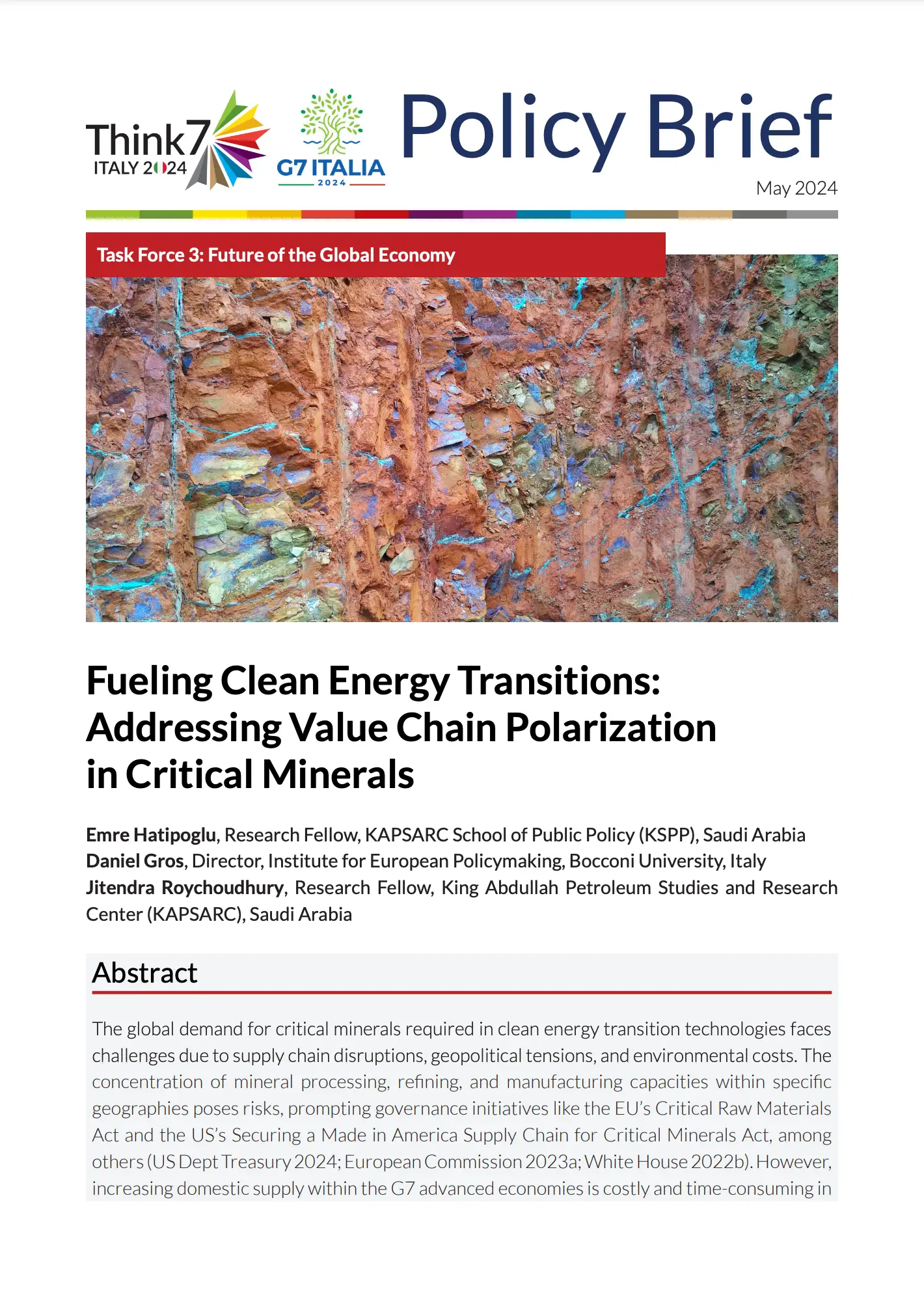India, like many other countries, is seeking to diversify its automotive fuel mix away from conventional petroleum fuels to alternate, cleaner fuels. The primary reasons for its diversification are energy security and public health due to harmful emissions from automotive fuels. At present, in India, diesel and gasoline are the most common automobile fuels. Increasing demand for these fuels could create serious concerns for the country’s national energy security and air quality. This paper analyzes the government of India’s past and present automotive fuel policy interventions, aimed at both mitigating harmful emissions
and addressing the growing concerns of energy security and rising crude oil imports.

Research Lead
Yagyavalk Bhatt is an energy professional with more than seven years of experience in the transportation and electricity domain. Yagyavalk…
Yagyavalk Bhatt is an energy professional with more than seven years of experience in the transportation and electricity domain. Yagyavalk leads “The Role of Clean Energy Policies: Trends in India’s Transport Sector” project, aimed at estimating India’s transport energy demand and potential impact on crude oil supply chain. His expertise covers energy policy, energy economics, transport modeling, the impact analysis of transport policies, emerging economies energy transition, renewable energy, and cost-benefit analysis of the transport and electricity sector. He has authored and contributed to numerous research papers and studies related to the transportation and electricity sector.
Expertise
- Policy Analysis
- Transport Demand Modeling
- Sustainable Transport
- Clean Energy Transition
- Renewable Energy
- Climate Change
Publications See all Yagyavalk Bhatt’s publications

India’s Shift Toward Alternative Fuel Vehicles: An Overview
India, like many other countries, is seeking to diversify its automotive fuel mix away from…
30th January 2024
Smart Cities from an Indian Perspective: Evolving Ambitions
India, like many other countries, is seeking to diversify its automotive fuel mix away from…
15th October 2023


